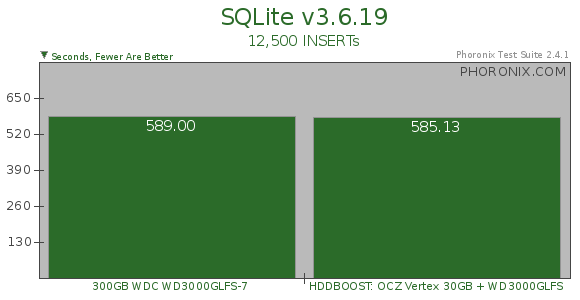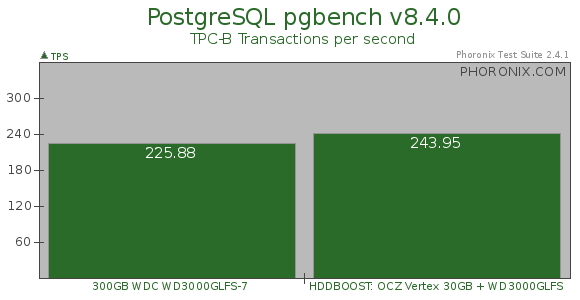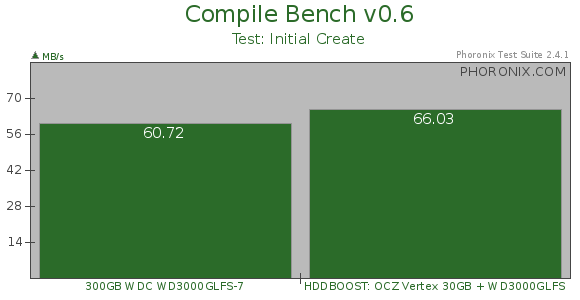SilverStone's Linux Results For The HDDBOOST
Back in April we reviewed the SilverStone HDDBOOST, which was a unique device that allows a solid-state drive to be combined with a traditional hard-drive to create a "virtual super storage solution" whereby SSD transfer speeds are enabled on the host hard drive while the write times to the SSD are reduced. Unfortunately, we were not able to get this unique contraption working well under Ubuntu Linux even though theoretically it should work just fine. However, SilverStone seems to have the device working within their labs and it is producing some interesting results.
Even after we published our initial review of the SilverStone HDDBOOST we still have had problems with getting the device to reliably work as intended. However, SilverStone engineers have managed to get the device working on their own systems with Ubuntu 10.04 powered by the Linux 2.6.32 kernel and the EXT4 file-system so they have shared their Phoronix Test Suite results. For their testing they used an Intel Core i3 530 CPU at 2.93GHz, an Intel motherboard, 2GB of RAM, a 300GB Western Digital WD3000GLFS-7 HDD, and an OCZ Vertex 30GB SSD.
While we cannot independently confirm these numbers, below are their Phoronix Test Suite results with the HDDBOOST from a number of our disk test profiles.

When beginning with the SQLite test profile there was no performance gain from the SQLite database performance when the SilverStone HDDBOOST paired the OCZ Vertex and Western Digital HDD.

About an 8% improvement can be spotted with the HDDBOOST in the PostgreSQL performance benchmark.

The HDDBOOST also increased the Compile Bench creation speed by about 8%.
